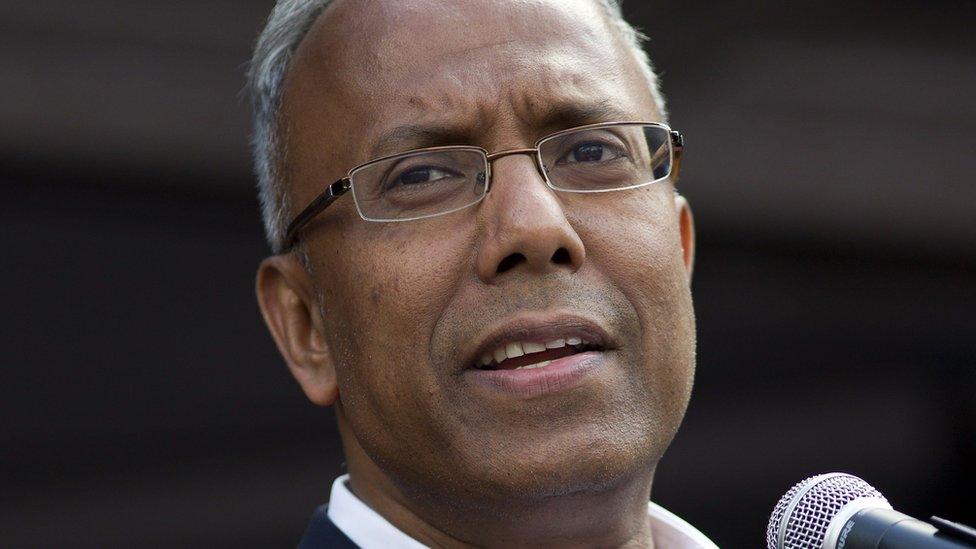Tower Hamlets by-election to use UK first photo entry system
- Published
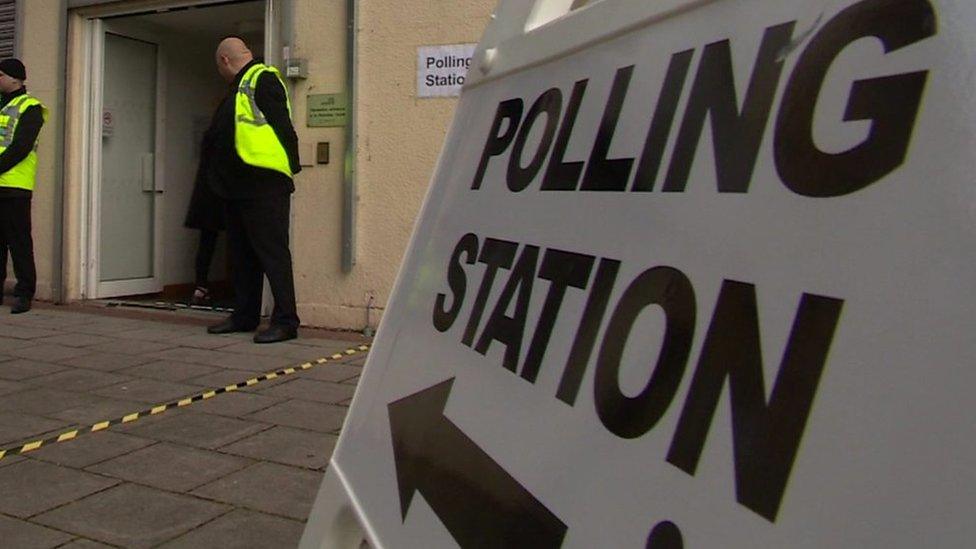
Police officers will also guard polling stations to deter voter intimidation
"Enhanced" security checks will be used for the first time ever in the UK for a council by-election following a previous vote-rigging scandal.
Tower Hamlets Council, in east London, will use a photographic entry system for anyone attending the count on Thursday.
Police officers will also guard polling stations to deter voter intimidation.
In 2014 some ballots were double-cast and votes intentionally lost at the count.
Former mayor of Tower Hamlets Luftur Rahman was found guilty of corrupt and illegal practices by an Election Court in 2015, and removed from office.
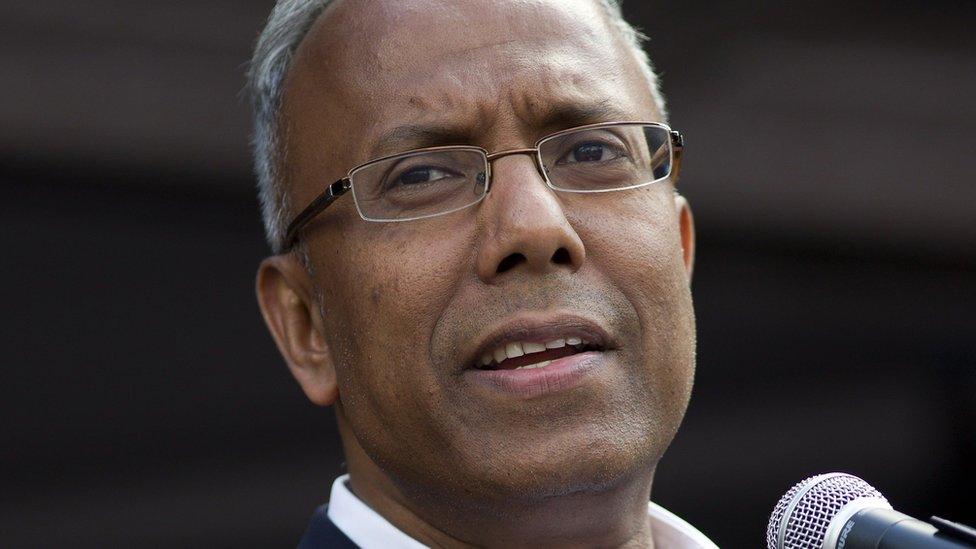
Lutfur Rahman was found guilty of corrupt and illegal practices by an Election Court in April 2015
Everyone attending the count, including serving councillors, candidates, party activists and journalists, will need to be registered on a new photo ID system to get into the town hall, according to the Local Democracy Reporting Service.
Those wishing to be present were required to submit a form including name, address and reason for attending — along with a passport photo.
Each attendee was then given a unique barcoded pass, and every time someone enters or leaves on the night, a security team will check that passes match the photo on the system.
If successful, it will be rolled out to all elections the council holds.
According to the council, 106 attendees have been accredited for the event.
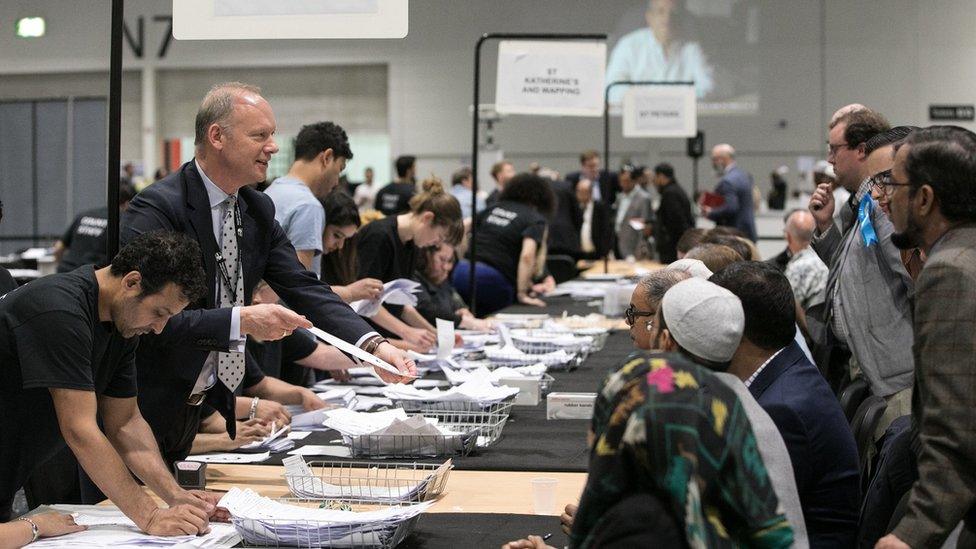
The council said 106 attendees had been accredited for the event
Tower Hamlets chief executive Will Tuckley said: "The system will bolster security and increase efficiency for officials and attendees."
The by-elections follow the resignations of two Labour councillors.
Muhammed Harun quit after he was accused of housing fraud. He has denied the claims.
Ruhul Amin resigned his seat in Shadwell for personal reasons.
The Met launched a year-long inquiry, which cost £1.7m, to determine whether criminal charges should be brought against Mr Rahman.
However, officers did not find sufficient evidence to charge anyone, the force said in September.
- Published10 March 2017
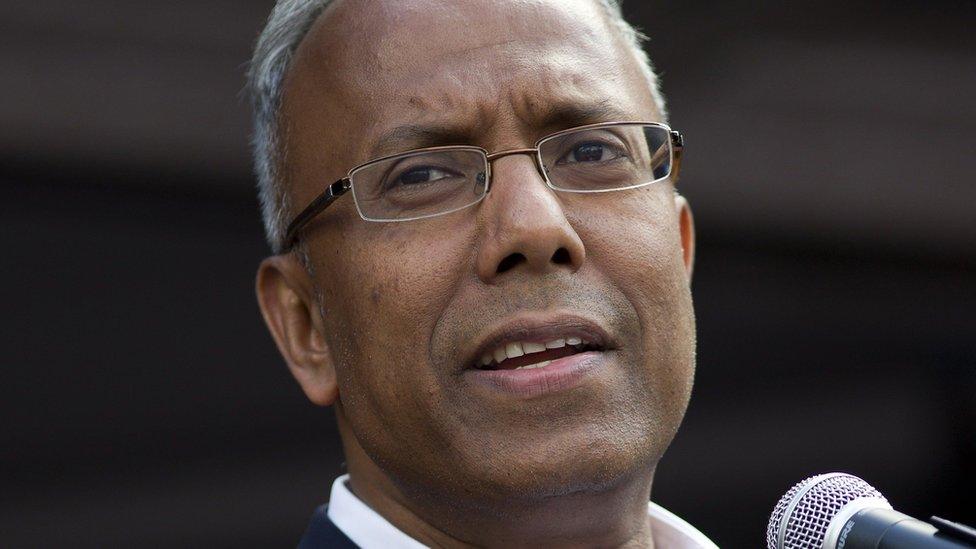
- Published7 September 2018

- Published7 February 2018
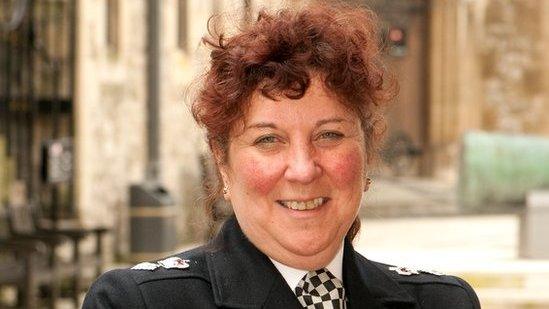
- Published31 October 2014
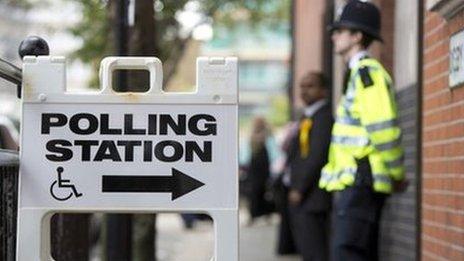
- Published23 April 2015
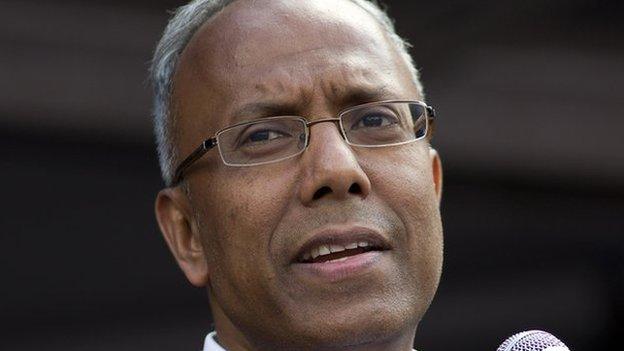
- Published21 March 2017
